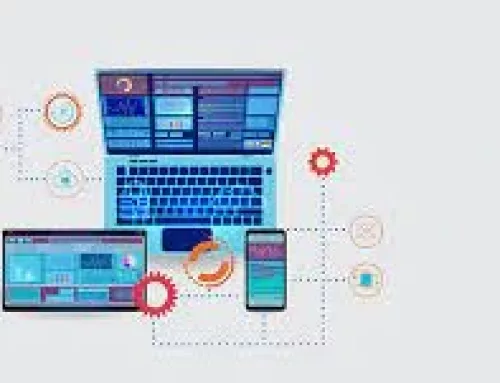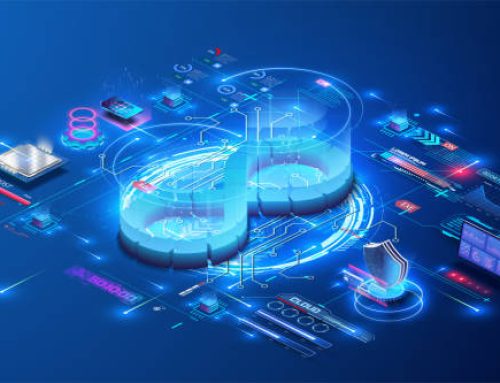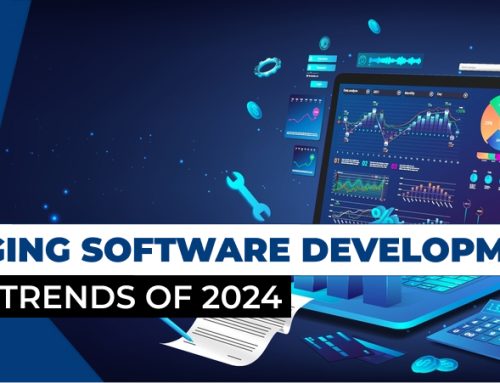1. AI-Driven Development:
The integration of Artificial Intelligence (AI) into software development processes is set to become more prevalent. AI algorithms will play a key role in automating routine coding tasks, enhancing code quality, and providing intelligent insights to developers. AI-driven development tools will streamline workflows, allowing developers to focus on more complex and creative aspects of software design.
2. Rise of Low-Code and No-Code Platforms:
The future of IT software development sees an increased reliance on low-code and no-code platforms. These platforms empower non-developers to contribute to the development process, accelerating the delivery of applications. As the demand for rapid application development grows, low-code and no-code tools will become integral in bridging the gap between business requirements and software implementation.
3. Quantum Computing Impact:
While still in its nascent stages, quantum computing is on the horizon as a disruptive force in IT software development. Quantum computers have the potential to solve complex problems at speeds unimaginable with classical computers. As the technology matures, quantum computing is expected to open new frontiers in optimization, cryptography, and simulation, transforming the capabilities of software applications.
4. Blockchain Beyond Cryptocurrencies:
Beyond its association with cryptocurrencies, blockchain technology is poised to have a profound impact on IT software development company. Decentralized applications (DApps), smart contracts, and secure data storage are areas where blockchain will play a crucial role. The transparency, security, and immutability inherent in blockchain offer innovative solutions for various industries.
5. Edge Computing Integration:
The proliferation of Internet of Things (IoT) devices and the need for real-time processing will drive the integration of edge computing into software development. Edge computing minimizes latency by processing data closer to the source, enabling faster decision-making. In the future, software applications will be designed to leverage edge computing for enhanced performance and responsiveness.
6. Continued Emphasis on Cybersecurity:
As cyber threats become more sophisticated, the future of IT software development will see an intensified focus on cybersecurity. Security measures will be integrated into every phase of the development lifecycle, with a particular emphasis on secure coding practices, penetration testing, and proactive threat mitigation. DevSecOps methodologies will become standard practice to ensure security is ingrained from the outset.
7. Progressive Web Applications (PWAs) Dominance:
Progressive Web Applications (PWAs) will become the norm in the future of IT software development. PWAs offer a seamless and responsive user experience across devices, combining the best of web and mobile applications. With offline capabilities, push notifications, and improved performance, PWAs will dominate the landscape, providing users with feature-rich and accessible applications.
8. Sustainable Software Development Practices:
Environmental sustainability will be a key consideration in the future of IT software development. Organizations will adopt sustainable practices, including energy-efficient coding, eco-friendly data center operations, and responsible resource usage. Green software development will become a hallmark of socially responsible and forward-thinking software companies.
9. Enhanced User Experience with Extended Reality (XR):
Extended Reality (XR), encompassing Augmented Reality (AR), Virtual Reality (VR), and Mixed Reality (MR), will play a significant role in enhancing user experiences. From immersive training simulations to interactive product demonstrations, XR technologies will revolutionize how users interact with software applications, providing engaging and innovative interfaces.
10. Evolving Role of Data Privacy:
With the increasing focus on data privacy, the future of IT software development will see a paradigm shift in how organizations handle user data. Stricter regulations and user expectations will necessitate transparent data practices, robust encryption, and mechanisms for user consent. Privacy-centric design will become a standard requirement in software development.
11. Collaboration in Remote Development Teams:
The rise of remote work is reshaping how software development teams collaborate. In the future, distributed and remote teams will become the norm. Collaboration tools, virtual workspaces, and asynchronous development practices will evolve to facilitate effective communication and coordination among team members across different time zones.
12. Continuous Learning Culture:
A culture of continuous learning and upskilling will be essential for software developers. The fast-paced evolution of technologies demands that developers stay abreast of the latest tools, languages, and frameworks. Continuous learning programs, mentorship initiatives, and collaborative knowledge-sharing platforms will be integral to fostering a dynamic and adaptive workforce.
Conclusion:
The future of IT software development promises a landscape of innovation, challenges, and transformative technologies. From the integration of AI and quantum computing to the rise of sustainable practices and enhanced user experiences, the industry is poised for significant advancements. Navigating this future landscape requires a commitment to adaptability, a culture of continuous learning, and a strategic approach to embracing emerging technologies.





